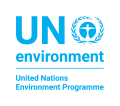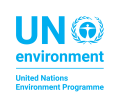Project Database
Many developing countries and emerging economies are currently defining country-specific strategies for their economies to become more inclusive, climate-friendly, resilient and resource-efficient. However, governments often face strong economic and social pressure, and transformational policies are difficult to advocate – unless proven socially and economically viable.
This is where the project...

The Government of China (PRC) has made a commitment to a green transition that will foster move inclusive, sustainable economic growth. GGGI is supporting the PRC in these effort through the Green Growth Transition project by:
- Identifying green growth indicators for possible incorporation into China's 13th Five-Year-Plan
- Conducting analysis of...
This project aims to conduct an integrated global assessment of the costs of action and inaction against land degradation. Land degradation is a global problem, affecting about a quarter of global land area. Moreover, about half of the global very poor live on degraded land. Given that the poor heavily...

The project “Enhancing South-South Cooperation – Building the Capacity of Developing Countries to Promote Green Economies” was based on the often-articulated wish of developing countries to exchange and share good practices with other countries of the South. The project had two key objectives. The first was to facilitate knowledge exchange...

This project supports Mongolia and Central Asian countries in developing research capacity on inclusive green economy (IGE) development in Central Asia. The participating countries share socio-economic challenges and environmental issues such as land degradation, water scarcity, energy inefficiency, and waste production, and by facilitating South-South Cooperation, this project promotes the...
The Environmental Performance Reviews (EPRs) identify good practices and make recommendations to improve the reviewed country’s environmental policies and programmes.
Environment Ministers of OECD member countries in January 1991, called on the OECD to review environmental performance in member countries. This mandate was confirmed by the OECD Council meeting at...

"The Low Emission Capacity Building Programme (LECBP) was launched in January 2011 as part of a joint collaboration between the European Union and UNDP. Since its inception the LECB Programme has grown both in scope and breadth, proudly including 25 participating countries and enhanced technical support through generous contributions from...

Amongst others, the main achievements of the project: Policy, Macro-economic Assessments and Instruments to Empower Governments and Business to Advance Resource Efficiency and Move Towards a Green Economy include:
1) Global analysis using system dynamic modelling and sectorial analysis providing the economic case for investing in the sectors of agriculture...
PAGE aims to contribute to the transformation of national economic structures in developing countries with the ultimate intention to achieve environmental sustainability, decent job creation, reduced poverty, and improved human well-being. PAGE is designed as a multi-year initiative that initially will deploy the expertise of its key partners to progressively...
Sustainable development will strongly depend on the secure and safe availability of food, water, energy, and industrial raw materials, which will increasingly be based on renewable resources. In this rapidly evolving context, the fundamental challenge is to frame the reliance on biomass without undermining the long-term productivity of agriculture and...
